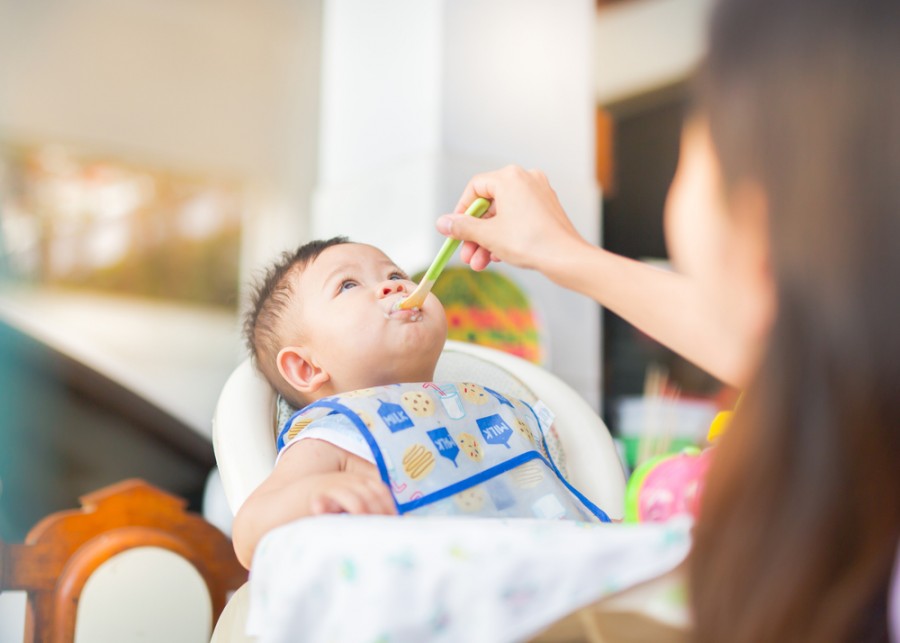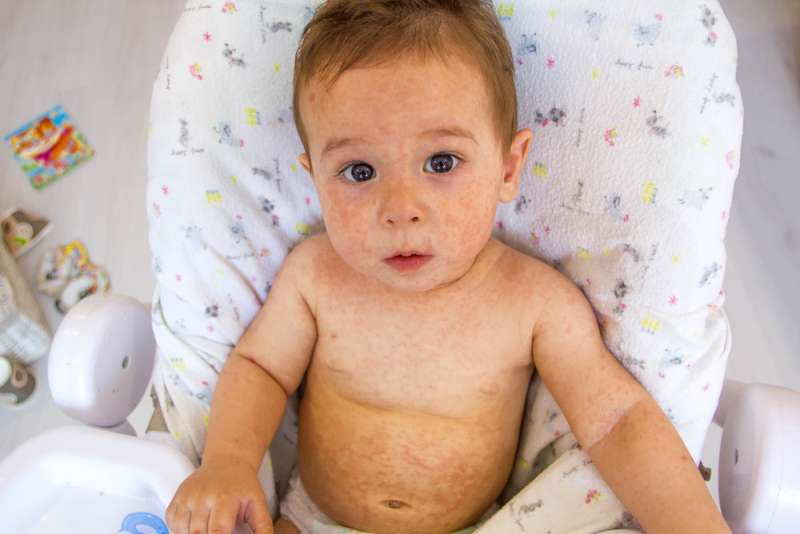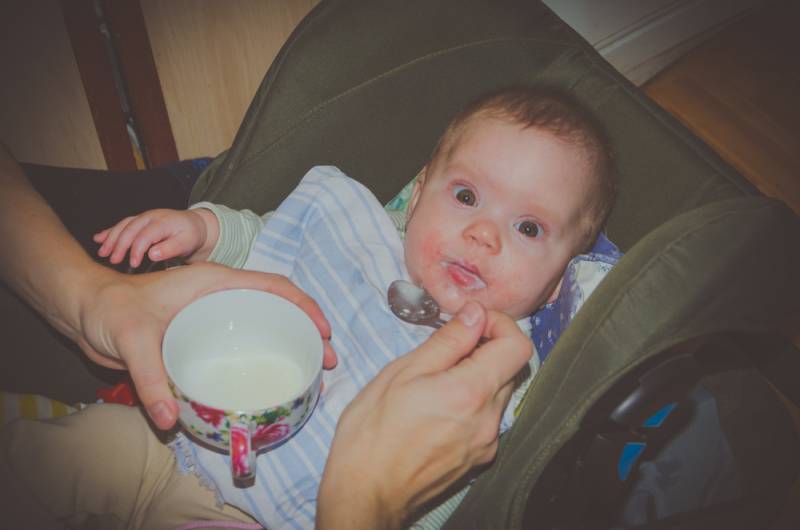Managing Food Allergies in Babies

Once you get the signs that your baby is ready for solids, you must now learn and be aware of possible food allergies that your baby might get.
Normally, health practitioners recommend starting baby food between the ages of 5-8 months of age.
Since a majority of normal babies are prone to develop food allergies after the age of 12 months, it is recommended to make your baby taste almost all (health) foods around, by that age.
There are different types of baby food allergies. Some of the baby food allergies are temporary whereas other baby food allergies may remain for a life time. As far as the level of severity of baby food allergies is concerned, some allergies may only cause mild rashes on the baby’s skin whereas, on the other hand, other allergies may cause upsetting of the stomach, itching all over the baby’s body etc.
Normally, at the age of 5 months, you can slowly start feeding solids to your baby. These solids can be in the form of cereals, fruits or even vegetables. It is highly recommended that such solids are in puree form. However, feeding solids doesn’t mean stopping milk feed altogether. Milk feed needs to continue slowly side by side along with feeding solids.
It is a good idea to observe your baby from being affected by any food allergies like wheat or nut allergies. However, some babies are more likely to develop food allergies than other babies because of hereditary factors. Slowly introducing solids in your baby’s diet, helps you determine which food isn’t going too well with your baby and resulting in allergies.

Tips to avoid food allergic reactions
Identifying the food
According to research, 90% of allergies that the majority of the babies develop are because of the following foods:
· Protein rich food like fish and sea food
· Grains such as wheat, soy seeds and corn
· Dairy products like egg, milk and yogurt
· Fruits like berries
· Nuts like peanuts etc.
Introducing one food at a time
It is very important to have a little bit of a break of around 3-4 days after introducing a new food to your baby, even if the food doesn’t appear to give any allergic effect on the baby. This is because, it is crucial to give your baby time to adjust to the new food, especially if the baby’s family already has a history of food allergies.
This break is also important for you to observe how your baby reacts to a certain food. This break will give you some time to observe if the newly introduced food is causing a allergic health reaction or affecting your baby negatively in any other way. Once you identify the problematic food, make sure you delete it from your baby’s food list and note it to baby’s health dairy so that everyone concerned is aware of it.

Best time of the day to Introduce food
It is normally recommended to avoid introducing new food to your little one in the evening or night time. It is a good idea to introduce new food to your baby in the morning or even early afternoon. This is because, during these times the mother is comparatively more alert to handle any issues in case her baby is showing any allergic reactions to the newly introduced food. Moreover, the majority of child specialists’ work during day time which can come handy in severe cases.
Symptoms of Food Allergic Reactions
Every baby is different and their body reacts differently to every food your introduce them. Some babies, when introduced with a new food, tend to react with sudden diarrhoea or even severe vomiting whereas other babies may only react by getting minor rashes over their bodies or even itching and swelling.
Mild food reaction signs can include a running nose or your baby getting annoyed right after having that particular new food. However, some babies might also get their faces, more particularly the baby’s lips and tongue swelled up. Moreover getting a sore or tightening of throat is also possible baby food allergic symptom.
Keeping track
Once you get to know the food that is not going well for your child and you’ve observed the allergic reactions, it is a good idea to firstly remove that food from your baby’s diet and secondly, make sure you make a note of the food and the allergic reaction it affects your baby with.
Further it is also important to stay alert and be ready to handle the situation in case your baby is mistakenly fed with that food again. The steps to follow are summarized below:
· Put a big note of “foods to avoid” for the food list that can cause allergy to your baby.
· Write down a list of “what to do” when you observe your baby negatively to a food item.
· Accordingly, stock up the required medicine for the baby to cure food allergies
· Routinely consult your doctor regarding cure of the concerned food allergies.



